 A few days ago I looked a bit at what it means that Psalm 139 pictures God in Christ writing our lives in a book. I discussed how this does not mean God has fated us, nor that God has willed disease, disaster, and death in the ways we often think of when we picture God as some puppet-master in the sky. No, rather, God works through covenant, through partnering with people like you and me who then work together with each other to help mend and perfect God’s good creation.
A few days ago I looked a bit at what it means that Psalm 139 pictures God in Christ writing our lives in a book. I discussed how this does not mean God has fated us, nor that God has willed disease, disaster, and death in the ways we often think of when we picture God as some puppet-master in the sky. No, rather, God works through covenant, through partnering with people like you and me who then work together with each other to help mend and perfect God’s good creation.
That said, I do think there is a powerful and beautiful message in Psalm 139 for us, as we reflect on what it means to see ourselves as ones surrounded by, shaped by, filled with, and led by the all-embracing presence of the Cosmic Christ through the Holy Spirit.
Though these words do not mean our lives necessarily are dictated by God, they do mean they are shaped by God. To me the way they are shaped by God is perhaps most beautifully pictured by the words of the hymn, “I Was There To Hear Your Borning Cry”:
http://a%20href=
“I was there to hear your borning cry,
I’ll be there when you are old.
I rejoiced the day you were baptized,
to see your life unfold.
“I was there when you were but a child,
with a faith to suit you well;
In a blaze of light you wandered off
to find where demons dwell.
“When you heard the wonder of the Word
I was there to cheer you on;
You were raised to praise the living Lord,
to whom you now belong.
If you find someone to share your time
and you join your hearts as one,
I’ll be there to make your verses rhyme
from dusk ’till rising sun.
“In the middle ages of your life,
not too old, no longer young,
I’ll be there to guide you through the night,
complete what I’ve begun.
“When the evening gently closes in,
and you shut your weary eyes,
I’ll be there as I have always been
with just one more surprise.
“I was there to hear your borning cry,
I’ll be there when you are old.
I rejoiced the day you were baptized,
to see your life unfold.”
As this song beautifully pictures, there is not a part of our lives in which the living Christ does not surround us on every side, holding and guiding us.
This means that if we stop, pay attention, and reflect on our own stories, these truly can be places we encounter Christ guiding and teaching us, showing us how we can best join in the story God has for us.
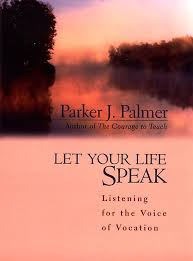 To me, Parker Palmer puts well the lesson of this aspect of coming to know more fully the cosmic Christ, when he writes:
To me, Parker Palmer puts well the lesson of this aspect of coming to know more fully the cosmic Christ, when he writes:
“self-care is never a selfish act — it is simply good stewardship of the only gift I have, the gift I was put on earth to offer to others. Anytime we can listen to true self and give it the care it requires, we do so not only for ourselves but for the many others whose lives we touch. . . Before I can tell my life what I want to do with it, I must listen to my life telling me who I am. . . Before you tell your life what you intend to do with it, listen for what it intends to do with you. Before you tell your life what truths and values you have decided to live up to, let your life tell you what truths you embody, what values you represent.” ― Parker J. Palmer, Let Your Life Speak: Listening for the Voice of Vocation
In his book Let Your Life Speak, Palmer beautifully pictures how he uses his experience of struggling with depression to help him learn to listen to his life anew and how simply paying attention to the lessons his lived and experienced life could teach revealed to him more fully his vocation.
I feel my movement from pastor to chaplain came through just such a process myself. I will not say I won’t pastor again, but I remember reaching a point that the ways in which I had been pastoring for years simply didn’t fit. I was trying to be and do a certain kind of ministry, one I had modeled to me, which was very in the streets, very busy speaking up and out in public ways, and full of much personal sacrifice. I did a lot of good. But my heart hurt so deeply. When other personal crises occurred that forced me to search my heart and soul, I realized the model of ministry I had been living out simply didn’t fit me. I took a step back, a step focused on inner healing.
That healing work within led me toward chaplaincy, a ministry in its own right, but which focuses on doing work of healing in the world from a place of inner healing. Looking back now, I realize that often in my outreach, activism, and pastoral work I was so focused outside myself — on the needs of others, on structural issues of injustice, on building communities for the broken – I neglected my own inner wholeness and healing. Now the work I do flows from that. I see how everything I did before going through this time of listening to my life and letting it guide me could have flowed from this same place, but I had to step back and change what I did in order to be able to minister from my inner depth.
Now my commitment in life and ministry is to let my relationships with others, the work I do, even my place in my community, flow from this inner depth. If I ever pastor again, it will be from the same inner wells of life that now fuels my chaplain work and writing and all my relationships.
Ultimately we all need to stop the constant pace of life and deeply listen to our own lives speak for, in the voice of our own lives the Coscmic Christ is calling out to us, the same One who tells us,
““I was there to hear your borning cry,
I’ll be there when you are old.
I rejoiced the day you were baptized,
to see your life unfold.”
Your progressive redneck preacher,
Micah
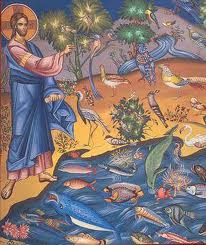 Yesterday I shared one of the prayers of Teilhard de Chardin to the cosmic Christ, and wanted to continue to share another today.
Yesterday I shared one of the prayers of Teilhard de Chardin to the cosmic Christ, and wanted to continue to share another today. In my previous devotional, I spoke some of the theology of Teilhard de Chardin, Catholic theologian and paleontologist of the last century who revolutionized theology by imaging ways in which creation and evolution might be viewed as not contradictions but interconnected ideas. Chardin imagined Christ’s cosmic presence in all things as expressed in the process of evolution itself. This process found in all of life was, in his mind, guiding us and all creation into a Christlikeness through which all things can eventually become embodiments of love.
In my previous devotional, I spoke some of the theology of Teilhard de Chardin, Catholic theologian and paleontologist of the last century who revolutionized theology by imaging ways in which creation and evolution might be viewed as not contradictions but interconnected ideas. Chardin imagined Christ’s cosmic presence in all things as expressed in the process of evolution itself. This process found in all of life was, in his mind, guiding us and all creation into a Christlikeness through which all things can eventually become embodiments of love. Another lesson of seeing Christ as the One who surrounds and fills our lives comes from the Psalmist’s invitation to imagine this ever-present One as shaping our days, when they write,
Another lesson of seeing Christ as the One who surrounds and fills our lives comes from the Psalmist’s invitation to imagine this ever-present One as shaping our days, when they write, When one reads through the Hebrew Scriptures, one does get the sense of something bigger than ourselves at work. Genesis tells the story of humanity with God as an active agent in it, calling certain people, teaching certain people, guiding their lives.
When one reads through the Hebrew Scriptures, one does get the sense of something bigger than ourselves at work. Genesis tells the story of humanity with God as an active agent in it, calling certain people, teaching certain people, guiding their lives. My late rabbi friend B. Z. Jernigan used to talk with me about the Jewish understanding of God’s purpose. People of faith and good will were called to engage in tikkun olam, mending or perfecting the world. God created the world good but not yet perfect. It had the goodness of a new born babe, beautiful and innocent yet, like a baby, immature. Like a baby has to grow up, learn, grow, and mature so our world must mature, growing to full-flower. Part of these growing pains can cause damage so that our world must not only become full-grown, but also mended in the places that are broken.
My late rabbi friend B. Z. Jernigan used to talk with me about the Jewish understanding of God’s purpose. People of faith and good will were called to engage in tikkun olam, mending or perfecting the world. God created the world good but not yet perfect. It had the goodness of a new born babe, beautiful and innocent yet, like a baby, immature. Like a baby has to grow up, learn, grow, and mature so our world must mature, growing to full-flower. Part of these growing pains can cause damage so that our world must not only become full-grown, but also mended in the places that are broken. Catholic scholar, paleontologist, and priest Teilhard de Chardin, spoke of this not just as a bringing to full-flower but actually a process of evolution. The Cosmic Christ to Teilhard is present in all of creation, helping guide its evolution to an Omega Point in which the whole universe will, when fully mature, completely reflect the image of God found in Christ.
Catholic scholar, paleontologist, and priest Teilhard de Chardin, spoke of this not just as a bringing to full-flower but actually a process of evolution. The Cosmic Christ to Teilhard is present in all of creation, helping guide its evolution to an Omega Point in which the whole universe will, when fully mature, completely reflect the image of God found in Christ.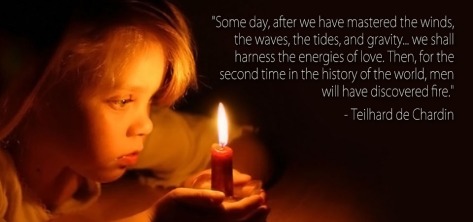 This is what 2 Corinthians, Colossians, and Ephesians keep talking about when they say that God is working to reconcile all of creation in Christ.
This is what 2 Corinthians, Colossians, and Ephesians keep talking about when they say that God is working to reconcile all of creation in Christ. And so we are called to be partners with God in the work God is doing, taking our place within God’s story not just as ones being written but as actors, co-creators with God in our lives and world. This partnership with God is what the Bible is talking about when it introduces the idea of covenant, a relationship in which God invites us to join in a mission bigger and broader than ourselves.
And so we are called to be partners with God in the work God is doing, taking our place within God’s story not just as ones being written but as actors, co-creators with God in our lives and world. This partnership with God is what the Bible is talking about when it introduces the idea of covenant, a relationship in which God invites us to join in a mission bigger and broader than ourselves. Last time, I spoke about the Cosmic Christ as the One alluded to in Psalm 139, as the all-embracing presence of God and of love that both surrounds our lives and fills them. Because of this we can look at wherever we go to, whatever we experience, as including Christ’s presence. In Psalm 139, this all-embracing presence also shapes who we are and who we become.
Last time, I spoke about the Cosmic Christ as the One alluded to in Psalm 139, as the all-embracing presence of God and of love that both surrounds our lives and fills them. Because of this we can look at wherever we go to, whatever we experience, as including Christ’s presence. In Psalm 139, this all-embracing presence also shapes who we are and who we become. Our unique personalities, too, are shaped in part by this same creative presence which gives us life, so even within our unique personalities there lies a reflection of Christ, shaped by the Cosmic Christ.
Our unique personalities, too, are shaped in part by this same creative presence which gives us life, so even within our unique personalities there lies a reflection of Christ, shaped by the Cosmic Christ. Sadly often Christianity has sent this message in the West in reiterating Augustine’s idea of original sin, that somehow we inherit a brokenness and guilt from our original ancestors that damns us to a life falling short of God’s best. Yet even without that piece of bad theology we can fall into looking at ourselves as damaged.
Sadly often Christianity has sent this message in the West in reiterating Augustine’s idea of original sin, that somehow we inherit a brokenness and guilt from our original ancestors that damns us to a life falling short of God’s best. Yet even without that piece of bad theology we can fall into looking at ourselves as damaged. “Our deepest fear is not that we are inadequate. Our deepest fear is that we are powerful beyond measure. It is our light, not our darkness that most frightens us. We ask ourselves, ‘Who am I to be brilliant, gorgeous, talented, fabulous?’ Actually, who are you not to be? You are a child of God. Your playing small does not serve the world. There is nothing enlightened about shrinking so that other people won’t feel insecure around you. We are all meant to shine, as children do. We were born to make manifest the glory of God that is within us. It’s not just in some of us; it’s in everyone. And as we let our own light shine, we unconsciously give other people permission to do the same. As we are liberated from our own fear, our presence automatically liberates others.”
“Our deepest fear is not that we are inadequate. Our deepest fear is that we are powerful beyond measure. It is our light, not our darkness that most frightens us. We ask ourselves, ‘Who am I to be brilliant, gorgeous, talented, fabulous?’ Actually, who are you not to be? You are a child of God. Your playing small does not serve the world. There is nothing enlightened about shrinking so that other people won’t feel insecure around you. We are all meant to shine, as children do. We were born to make manifest the glory of God that is within us. It’s not just in some of us; it’s in everyone. And as we let our own light shine, we unconsciously give other people permission to do the same. As we are liberated from our own fear, our presence automatically liberates others.” I continue to talk about us and our stories, as well as the stories of others, as ways to encounter Christ.
I continue to talk about us and our stories, as well as the stories of others, as ways to encounter Christ. 4 Even before a word is on my tongue,
4 Even before a word is on my tongue, Like a fish is ever surrounded by the ocean, yet has its water ever flowing through its body, so our lives are lived within Christ as Christ is present in all creation. As Jurgen Moltmann suggests in his books God in Creation and The Source of Life, one can legitimately picture God in Christ in these verses as being depicted like a mother in whose womb we exist like children. While in our earthly mother’s womb, we are surrounded by her, yet she also fills us. For it is her air, her nourishment, her body’s strength that fills our own while we dwell within her. Likewise the Psalmist pictures God as so near us in Christ that w we live in, with, and surrounded by Christ in every place, with Christ being the life, strength, and nourishment flowing through us. Is it any wonder St. Julian of Norwich pictured Jesus as the Cosmic Christ as existing as our Mother when she wrote,
Like a fish is ever surrounded by the ocean, yet has its water ever flowing through its body, so our lives are lived within Christ as Christ is present in all creation. As Jurgen Moltmann suggests in his books God in Creation and The Source of Life, one can legitimately picture God in Christ in these verses as being depicted like a mother in whose womb we exist like children. While in our earthly mother’s womb, we are surrounded by her, yet she also fills us. For it is her air, her nourishment, her body’s strength that fills our own while we dwell within her. Likewise the Psalmist pictures God as so near us in Christ that w we live in, with, and surrounded by Christ in every place, with Christ being the life, strength, and nourishment flowing through us. Is it any wonder St. Julian of Norwich pictured Jesus as the Cosmic Christ as existing as our Mother when she wrote, “It is thus logical that God, being our Father, be also our Mother. Our Father desires, our Mother operates and our good Lord the Holy Ghost confirms; we are thus well advised to love our God through whom we have our being, to thank him reverently and to praise him for having created us and to pray fervently to our Mother, so as to obtain mercy and compassion, and to pray to our Lord, the Holy Ghost, to obtain help and grace. I then saw with complete certainty that God, before creating us, loved us, and His love never lessened and never will. In this love he accomplished all his works, and in this love he oriented all things to our good and in this love our life is eternal. With creation we started but the love with which he created us was in Him from the very beginning and in this love is our beginning. And all this we shall see it in God eternally.”
“It is thus logical that God, being our Father, be also our Mother. Our Father desires, our Mother operates and our good Lord the Holy Ghost confirms; we are thus well advised to love our God through whom we have our being, to thank him reverently and to praise him for having created us and to pray fervently to our Mother, so as to obtain mercy and compassion, and to pray to our Lord, the Holy Ghost, to obtain help and grace. I then saw with complete certainty that God, before creating us, loved us, and His love never lessened and never will. In this love he accomplished all his works, and in this love he oriented all things to our good and in this love our life is eternal. With creation we started but the love with which he created us was in Him from the very beginning and in this love is our beginning. And all this we shall see it in God eternally.”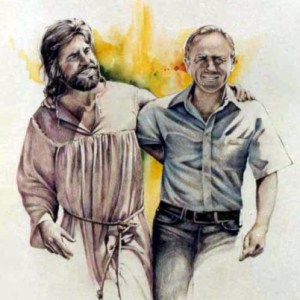
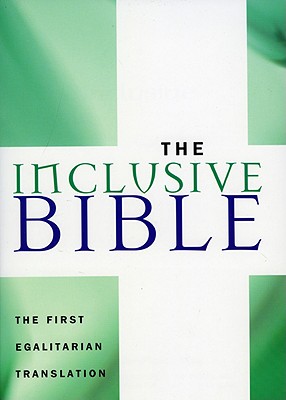
 God appears as a mother bird to the Psalmist, as a head of the armies of heaven in Joshua and Judges, as living waters and fire in John and Acts, as the Wisdom at play in all creation in Proverbs. The list goes on and on.
God appears as a mother bird to the Psalmist, as a head of the armies of heaven in Joshua and Judges, as living waters and fire in John and Acts, as the Wisdom at play in all creation in Proverbs. The list goes on and on. I helped with confirmation at the church I attend a few years ago. During confirmation, our pastor Rev. Dr. Jill Edens told the teenagers considering whether to confirm as their own the Christian faith they were baptized into that a helpful way to look at Scripture is as if when we open its pages we are gathered around table at family reunion. While there, family members each tell their stories about important times in the family. At times the way one uncle or aunt tells the story may be different than another family member’s. The details differing are not then viewed as if the family reunion is broken. Rather, the more experiences shared deepen our understanding and experience.
I helped with confirmation at the church I attend a few years ago. During confirmation, our pastor Rev. Dr. Jill Edens told the teenagers considering whether to confirm as their own the Christian faith they were baptized into that a helpful way to look at Scripture is as if when we open its pages we are gathered around table at family reunion. While there, family members each tell their stories about important times in the family. At times the way one uncle or aunt tells the story may be different than another family member’s. The details differing are not then viewed as if the family reunion is broken. Rather, the more experiences shared deepen our understanding and experience.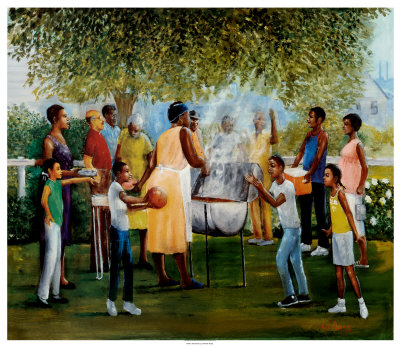 The beautiful thing about family reunion as analogy for Scripture is that when we gather around the family reunion table, who is there changes year to year.
The beautiful thing about family reunion as analogy for Scripture is that when we gather around the family reunion table, who is there changes year to year.